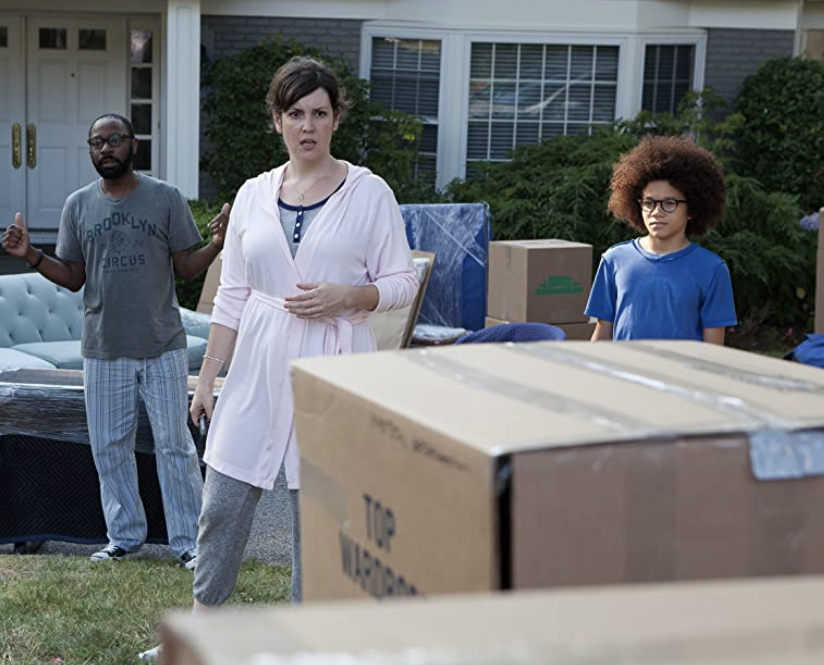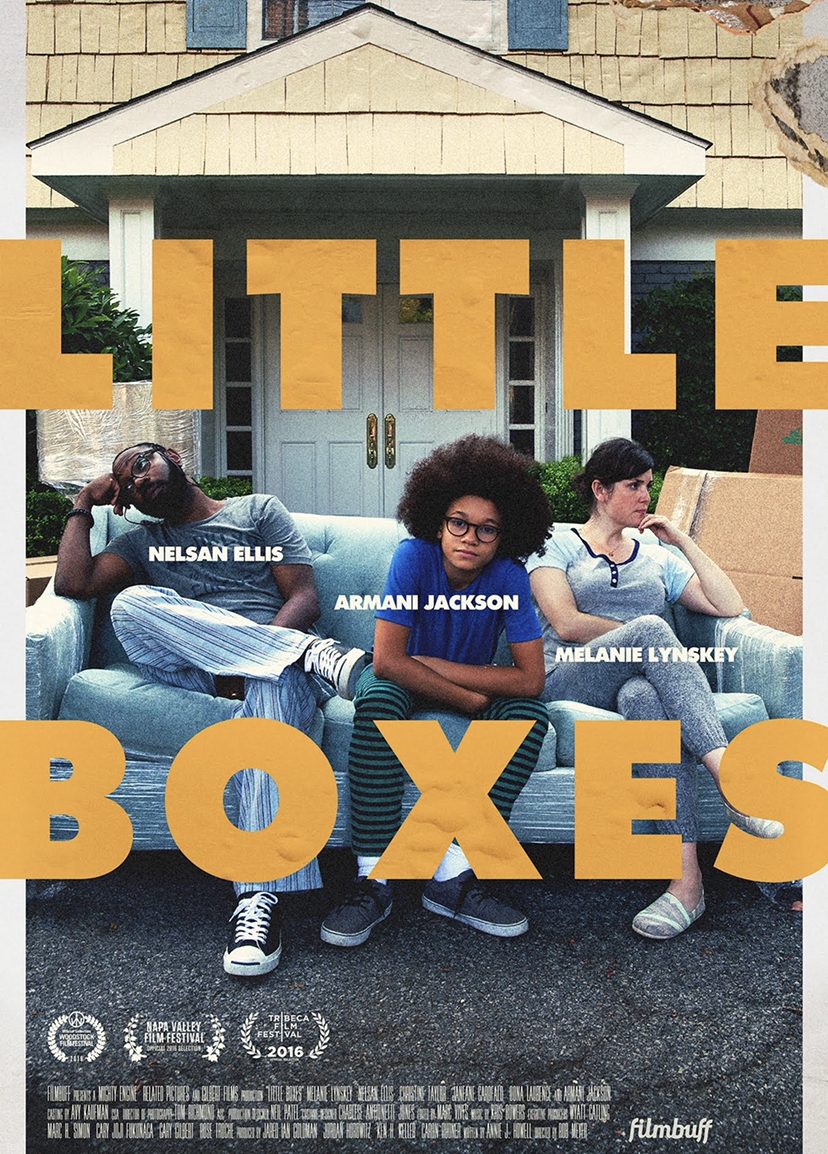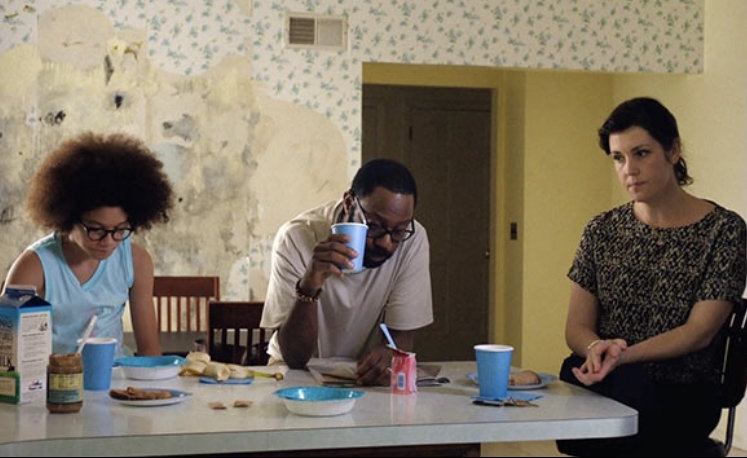The Owl House: A Children’s Show with a Bisexual, Hispanic Lead!
In ‘The Owl House’ protagonist Luz Noceda stumbles across a portal to another dimension where magic exists, called The Boiling Isles.



(Spoiler warning for major plot points.)
I definitely see what message ‘Little Boxes’ was trying to convey. A change of setting from a large, diverse city to a smaller town where more or less everyone looks the same can be incredibly jarring. While Gina (Melanie Lynskey) and Mack (Nelsan Ellis) Burns have to handle their new realities, it is especially hard on their son Clark (Armani Jackson). The parents are already adults with fully established identities. They’re less likely to lose sight of who they are based on their new location. Clark, however, is also dealing with growing up. Being so, he is a lot less sure of himself and is far more influenced by what others around him think he should be as he wants to fit in. Clark starts to make friends with two girls, Ambrosia (Oona Laurence) and Julie (Miranda McKeon). As they have no prior exposure to people of color, they ignorantly pass judgement on him based on stereotypical expectations from the media. They make a lot of assumptions about Clark’s interests and his behavior, and frequently comment microaggressions. Unfortunately, the character of the girls (and many of the adults) in this film is where my biggest critique lies. Even though they’re young kids from a small town, I find the problematic things they say unrealistic. Besides the microaggressions that are more subtle in showing their ignorance, much of the dialogue feels too on the nose. There are various scenes where I found myself thinking “Who talks like this?” Take for instance when the girls initially meet Clark. Ambrosia pulls Julie aside and remarks how they “totally needed a black kid” because their town was “so white.” While there’s a theme of tokenism being set up that will carry through the rest of the film (Ambrosia is especially guilty of tokenizing Clark, as it seems to be the only reason she likes him), the way it’s said feels clunky. Soon after this, they take pictures of him on their phones. We can assume this is to show their other friends their amazement of seeing a person of color. They then ask if he likes rap. Again, I get that this is to show how they are trivializing his racial identity, but I don’t know if I could imagine kids seriously going that far. There’s another moment where they’re all in a diner and Ambrosia accuses the server, her brother Cooper (Gabriel Rush), of racism for taking Clark’s order last. She loudly questions, “Because he’s black?” then yells “Just kidding everybody!” I cringed so hard. I see the dynamic they’re trying to set up with Ambrosia and Clark, but it’s so dreadfully obvious! There’s no sense of nuance.

What’s worse is the adults. As I referenced, both of Clark’s parents have their own social interactions with people in the town: Gina deals with her coworkers at the town’s college while Mack socializes with their neighbors. In particular, Mack joins his new neighbor Tom (David Ebert) at a bar and things escalate to become problematic real quick. While intoxicated, Tom loudly announces to the room that he and Mack are friends. He then proclaims what’s so great about Mack is that, “If you close your eyes you can’t even tell he’s black.” That I found completely unbelievable, who in their right mind would blurt that out even while drinking? Does nobody in this film have a filter? In general, the dialogue in ‘Little Boxes’ doesn’t flow or feel real. The acting makes the awkward dialogue apparent, as both the children and adult actors have very stiff performances and line reads.

‘Little Boxes’ is not entirely devoid of positive qualities. As a concept, there was underlining interesting commentary on the realities of being biracial that I haven’t seen come up much in media. I did empathize with Clark’s struggle, as I myself am half white and Hispanic. I could easily put myself in his shoes; It can be hard to (especially as a child) fully grasp race as a concept and where you fall if you’re from two backgrounds. Often, you’re made to believe you’re either one race or the other and may feel inadequate on both ends. People love to label things, and when you don’t neatly fit into little boxes (pun intended?) of Black, white, Hispanic, etc. they might question the legitimacy of your identity. We see this highlighted in the film towards the end when Ambrosia meets Clark’s mom. She has a meltdown and storms off, locking herself in a room. Clark chases after her and she snaps, “You’re not even… you acted like you were… you lied!” in reference to his blackness. Of course it’s for the individual to decide what they wish to present as, if anything at all. It’s their own business, yet those on the outside can try to gatekeep ethnicity based on appearance. I do appreciate that they tried to tackle that subject. Connecting with Clark in that sense is just my personal experience. Someone who has a different background may struggle to relate based on that alone. The dialogue and acting are again, not great, so I wouldn’t be surprised if they didn’t feel much for him. There are some good moments of tension here and there that the jazz soundtrack aids, particularly when Mack frantically rips at the wallpaper in their home, revealing black mold. At the core, ‘Little Boxes’ is about the Burns family and the strain moving has put on their relationships to one another. Besides the people around them awkwardly not knowing how to treat them, there’s also the issue of the mold and their things being delayed in delivery. That element is effective. I can also positively acknowledge the conversation Mack has with his son. After being rejected by Ambrosia, Clark expresses to his father his negative feelings towards white people after the experience, which his father states is a generalization. Clark then says that people have generalized him, prompting his father to say, “It doesn’t matter, Clarky. You can’t treat people like they’re groups. You have to treat people like they’re individuals.” While that take goes without saying, some people do forget it. Anyone from any background can hold prejudice — it’s not exclusive to any singular race. Just because you’ve had unsavory experiences with specific people doesn’t give you clearance to then broadly assume the worst of that entire population.
I would rate ‘Little Boxes’ an Incluvie score of 3.5/5. I give it this score because, despite the main character being a cluvie, it has awkward execution. It’s unfortunate because all of the pieces are there, but the tools used to put the film together (dialogue, acting, etc.) failed to optimize it.
As a whole movie, I rate ‘Little Boxes’ a 3/5. There were hints of there being a really interesting story! I wish I could rate it higher for the premise alone. However, the acting and dialogue make it nearly painful watch, and the story was beyond predictable.
Related lists created by the same author
In ‘The Owl House’ protagonist Luz Noceda stumbles across a portal to another dimension where magic exists, called The Boiling Isles.
Related Movie / TV / List / Topic
A young woman finds herself trapped in a crossfire of awkwardness during a nightmarish dinner party with her boyfriend's dysfunctional family.